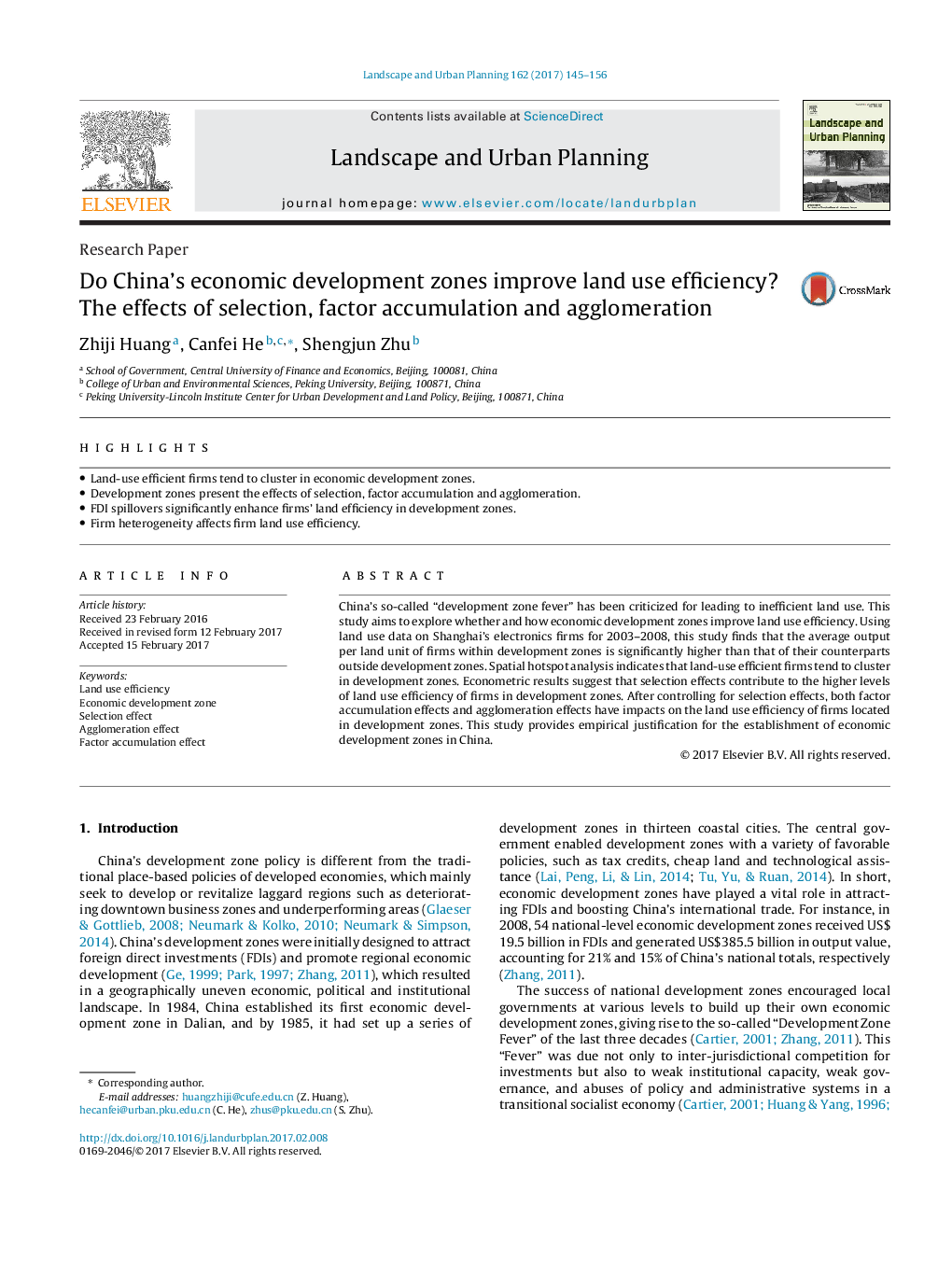| Article ID | Journal | Published Year | Pages | File Type |
|---|---|---|---|---|
| 5115053 | Landscape and Urban Planning | 2017 | 12 Pages |
Abstract
China's so-called “development zone fever” has been criticized for leading to inefficient land use. This study aims to explore whether and how economic development zones improve land use efficiency. Using land use data on Shanghai's electronics firms for 2003-2008, this study finds that the average output per land unit of firms within development zones is significantly higher than that of their counterparts outside development zones. Spatial hotspot analysis indicates that land-use efficient firms tend to cluster in development zones. Econometric results suggest that selection effects contribute to the higher levels of land use efficiency of firms in development zones. After controlling for selection effects, both factor accumulation effects and agglomeration effects have impacts on the land use efficiency of firms located in development zones. This study provides empirical justification for the establishment of economic development zones in China.
Related Topics
Life Sciences
Agricultural and Biological Sciences
Ecology, Evolution, Behavior and Systematics
Authors
Zhiji Huang, Canfei He, Shengjun Zhu,
